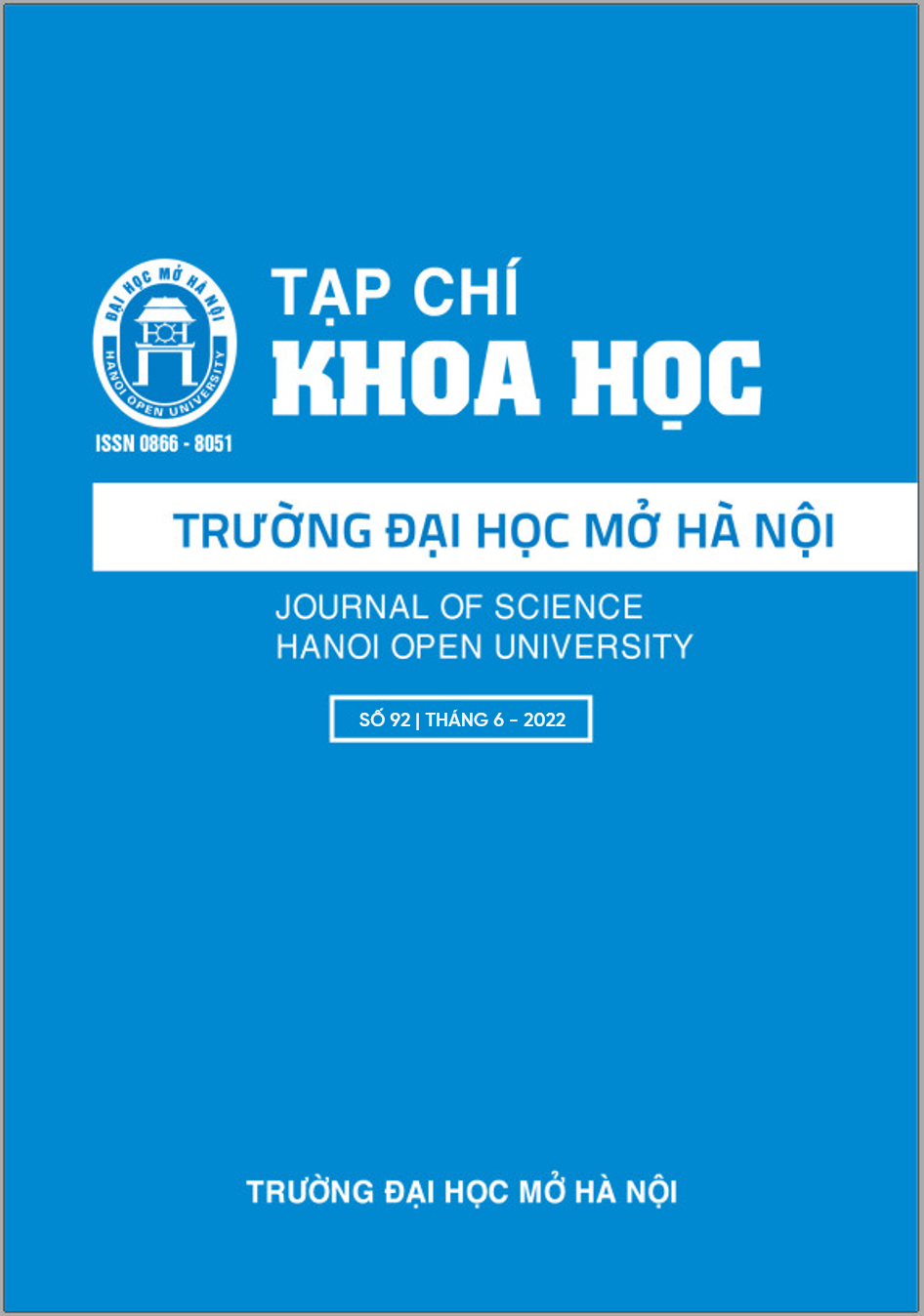SOLUTIONS TO GET STUDENTS MORE ENGAGED IN ONLINE LEARNING OF WRITING AT HA NOI OPEN UNIVERSIY DURING COVID 19 PANDEMIC
Keywords:
Interest, online learning in writing, difficulties, COVID-19, students of Faculty of EnglishAbstract
The Covid-19 pandemic has spread globally and has significantly affected to all areas including the education and training field. Facing these challenges, Hanoi Open University has also implemented online learning to promptly respond to the complicated developments of the COVID-19 epidemic. However, the reality shows that, in the process of implementing this activity, students still face many difficulties and barriers, especially in online learning of writing. Through an online survey with 291 students at the Faculty of English, Hanoi Open University, the results clearly showed that psychological, environmental, and learning media/devices are considered as the main reasons that make students face many obstacles in learning writing online. Therefore, based on this result, the article will propose some practical solutions to increase the interest in online learning in writing to achieve better results in the future.
References
[1]. Alavi, M. & Leidner, D.E. (2001). Research commentary: technology-mediated learning-a call for greater depth and breadth of research. Information Systems Research, 12,1-10.
[2]. Dewey, J. (1938). Experience in education. New York: Macmillan
[3]. Garjaka, K. (2010). Teaching with Students: Effective Instruction in Culturally and Linguistically Diverse Classrooms, Multilevel and Diverse Classrooms, TESOL Classroom Practice Series. Virginia: Lecturers of English to Speakers of Other Languages, Inc.
[4]. Kroll, B. (1991). Teaching Writing in the ESL Context.Teaching English as a Second or Foreign Language. Boston: Heinle & Heinle Publishers, Massachusetts
[5]. Lyons, J. F. (2008). Teaching history online. Routledge.15
[6]. Li, Q., & Akins, M. (2005). Sixteen myths about online teaching and learning in higher education: Don’t believe everything you hear. TechTrends, 49(4), 51-60.
[7]. Nunan D. (2000). Language Teaching Methodology. International Book Distributors Ltd.
[8]. Nguyễn Quang Uẩn (2013). Giáo trình Tâm lý học đại cương. NXB Đại học Sư phạm.
[9]. Vygotsky, L. S. (1978). Mind in society. Cambridge, MA: Harvard University Press.
